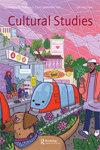不仅仅是“在家工作”:大流行期间和之后的家庭空间、经济和生活基础设施
IF 1.2
3区 社会学
Q1 ANTHROPOLOGY
引用次数: 0
摘要
本文借鉴了2020年2019冠状病毒病大流行期间,对悉尼、新南威尔士州和维多利亚州墨尔本13个澳大利亚家庭在家工作的员工进行的民族志研究。我们通过视频会议软件进行了采访和家庭巡视,并辅以住户的日记和照片,我们最初对人们如何通过数字技术管理在家工作感兴趣。然而,随着项目的发展,我们对更广泛的家庭生活角色的重新配置感到震惊。在此期间,许多人发现自己不仅被限制在家里,而且不得不尝试新的生活方式,因为家庭成为经济、社会和基础设施流动以及商品和服务流通的中心。在我们的研究中,家庭参与了一系列与在家自我管理就业相关的实践。我们可能认为的“在家工作”实践包括从管理工作空间、公用事业和能源使用到家庭的情感氛围等方方面面。这种将家庭作为社会、文化和经济生活的中心枢纽的重新配置可以通过两种互补的方法有效地理解:女权主义规划师Gilroy和Booth([1999])。为日常生活建设基础设施。欧洲规划研究,7(3),307-324)将“日常生活的基础设施”和Gibson和Graham的([2008]多样化经济:“其他世界”的行为实践)称为“日常生活的基础设施”。人文地理进展,32(5),613-632。虽然我们研究的做法可以被视为代表特权(在阶级和种族方面)流行病应对,但根据吉布森-格雷厄姆,我们根据(重新)想象未来的社会现实来构建我们的研究结果。我们确定了3个类别:新的家庭;工作与家庭生活的“生活基础设施”;以及日常经济。在这样做的过程中,我们强调了公民和家庭生活中隐藏的、往往是女性化的元素——“基础经济”(巴贝拉,F.,内格里,N.,和萨伦托,A., 2018)。从个人选择到集体发声。基础经济,地方公地和公民权。《意大利社会学杂志》(Rassegna Italiana di sociologia, 2,371 - 398.))的护理和服务提供及其他方面的研究,以强调这一基础经济对我们接种疫苗后的未来有多么重要。[源自作者]本文章由计算机程序翻译,如有差异,请以英文原文为准。
More than just ‘working from home’: domestic space, economies and living infrastructures during and beyond pandemic times
This article draws on an ethnographic study of employees working from home in 13 Australian households in Sydney, New South Wales and Melbourne, Victoria during the COVID-19 pandemic in 2020. Conducting interviews and household walk throughs via video conferencing software, supplemented by diaries and pictures from householders, we were initially interested in how people managed working from home via digital technology. As the project evolved however, we were struck by the reconfigured role of home life more broadly. During this time, many people found themselves not only restricted to their homes but having to experiment with new modes of living as households became hubs for economic, social, and infrastructural flows and the circulation of goods and services. The households in our study engaged in an array of practices related to self-managing employment from home. What we might think of as the ‘work of working from home’ practices included everything from managing workspaces, utilities and energy use, to the emotional atmosphere of the home. This reconfiguration of the home as a central hub of social, cultural, and economic life can be productively understood via two complementary approaches: what feminist planners Gilroy and Booth ([1999]. Building an infrastructure for everyday lives. European planning studies, 7 (3), 307–324) have termed ‘the infrastructure of everyday life’, and Gibson and Graham's ([2008] Diverse economies: performative practices for ‘other worlds’. Progress in human geography, 32 (5), 613–632) work on alternative economies. While the practices we studied could be seen as representing a privileged (in terms of class and race) pandemic response, following Gibson-Graham we frame our findings in terms of (re)imagining future social realities. We identify 3 categories: new domesticities;the ‘living infrastructures’ of work–home life;and everyday economies. In doing so we highlight the hidden and often feminized elements of civic and domestic life – the ‘foundational economy’ (Barbera, F., Negri, N., and Salento, A., 2018. From individual choice to collective voice. Foundational economy, local commons and citizenship. Rassegna Italiana di sociologia, 2, 371–398.) of care and service provision and beyond – to emphasize just how central this foundational economy has become to our post-vaccination futures. [ FROM AUTHOR]
求助全文
通过发布文献求助,成功后即可免费获取论文全文。
去求助
来源期刊

Cultural Studies
Multiple-
CiteScore
3.50
自引率
6.70%
发文量
0
期刊介绍:
Cultural Studies is an international journal which explores the relation between cultural practices, everyday life, material, economic, political, geographical and historical contexts. It fosters more open analytic, critical and political conversations by encouraging people to push the dialogue into fresh, uncharted territory. It also aims to intervene in the processes by which the existing techniques, institutions and structures of power are reproduced, resisted and transformed. Cultural Studies understands the term "culture" inclusively rather than exclusively, and publishes essays which encourage significant intellectual and political experimentation, intervention and dialogue.
 求助内容:
求助内容: 应助结果提醒方式:
应助结果提醒方式:


